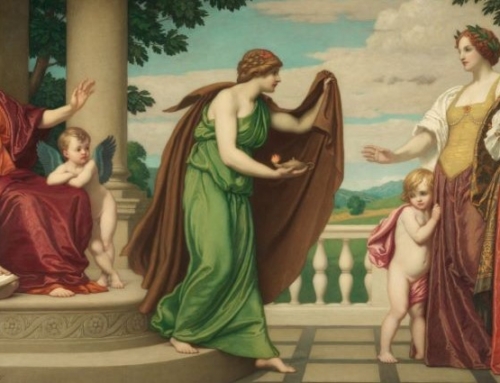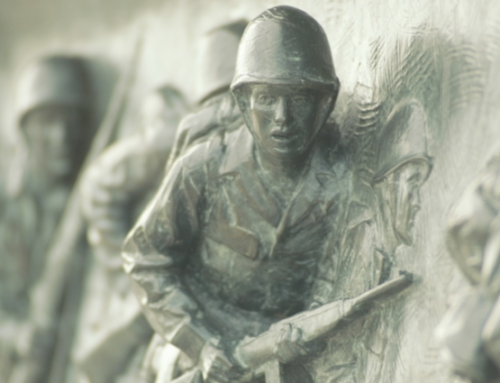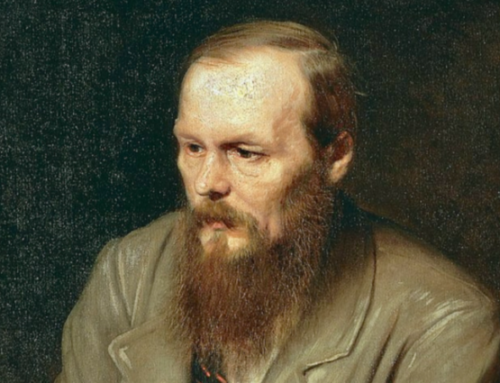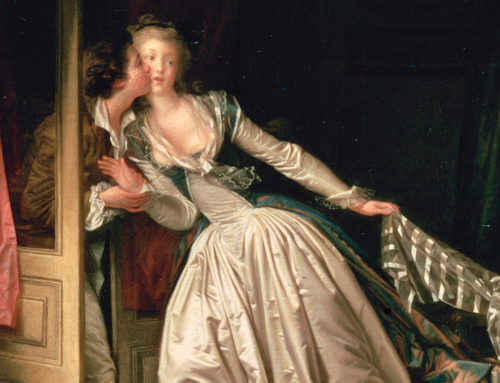You seem to think that history signifies nothing more than one meaningless event after another. But you only do so because you lack eyes to see. Behind that course of events that you dismiss as chaotic and haphazard is a hidden line of purpose that is moving us and our world toward a good end that will give meaning to all that came before it.
Author’s Introduction: Imagine if Homer, Virgil, Dante, Chaucer, and the other great poets of ancient Greece, Rome, and the Middle Ages had been given the gift, not only to peer into the twenty-first century, but to correspond with us who live in that most confusing and rudderless of centuries. Had it been in their power to do both of those things, what might they say to us? How would they advise us to live our lives? What wisdom from their experience and from their timeless poems might they choose to pass down to us?
Virgil: On History
History is not random. It is going some place.
Most of the learned men who lived in my age knew that great truth, but the scholars of your day seem to have forgotten it. They act as if the flow of events were wholly arbitrary, without meaning or purpose or direction. As if it were guided along, not by a greater divine plan, but by dumb, material forces that know nothing of beginnings or endings, origins or goals, inaugurations or culminations.
You seem to think that history signifies nothing more than one meaningless event after another. You discern no higher pattern and are therefore content to explain everything away by reference to natural causes and blind accidents. But you only do so because you lack eyes to see. Behind that course of events that you dismiss as chaotic and haphazard is a hidden line of purpose that is moving us and our world toward a good end that will give meaning to all that came before it.
I wrote my epic, in part, to trace that line, to uncover the real, hidden forces that propel history forward.
#
At first, my Aeneas did not understand his role in history. All he saw was that the city he loved was burning down around him, and he wanted to die fighting for its survival. Any talk of a future good rising up out of the fall of Troy had no meaning to Aeneas. The death and destruction were too near; he could not achieve anything like a removed, higher perspective.
That is, until Venus, his goddess mother, vouchsafes her son a vision rarely glimpsed by time-bound mortals. With a wave of her divine hand, she rips away the veil that shields the eyes of all of us from staring into the precincts of eternity. At first, all is blank darkness for the confused and despairing hero. But then, as he clears his mind and focuses his eyes, he sees great and mighty forms swirl into shape.
A moment ago, where Aeneas had seen a troop of Greeks pushing their shoulders against a wall in hopes of toppling it, he now sees Neptune, God of the Sea, tearing up the roots of the wall with his enormous trident. Where only seconds previously he had seen soldiers with axes hacking away at the Gates of Troy, he now sees Juno, Queen of the Gods, crushing those same Gates in her massive hands.
The real forces that propel history forward. The Ghosts in the Machine. Aeneas sees them, and they bring him peace in the midst of chaos. Few of us will ever be granted such a vision, but that does not justify our abandoning all sense of purpose in the flow of historical events.
We must have faith in what we cannot see. We must put our trust in a divine plan whose shape we cannot discern and whose ending we will likely not live to see.
#
Of course, it’s not always easy to keep one’s faith pure and one’s trust strong. My Aeneas doubted and second-guessed himself every step of the way. It is so easy to get sucked into the frustrating details and the painful events and lose sight of the larger pattern. Even after his mother opens his eyes to see the invisible pattern, Aeneas loses heart and yearns to end his seemingly endless journey.
That is why, during his descent into the underworld, Aeneas is afforded a second vision, this one from his human father, Anchises. Rather than open his son’s eyes to divine forces that transcend our earthly realm, Anchises reveals to Aeneas the humble seeds that are waiting, patiently, beneath the earth for their time of sprouting, growth, and flowering to arrive.
What Aeneas sees are the souls of those who will one day ascend to the earth and become the noble warriors and leaders who will guide Rome along her thousand-year march from monarchy to republic to empire, from Romulus, Numa, and Tarquin, to Horatius Cocles, Cincinnatus, and Scipio Africanus, to Julius Caesar, Marc Antony, and Caesar Augustus.
The whole strange and wonderful parade of Roman history stored up in the underworld awaiting its day in the sun.
#
And yet, even that is not enough to convince Aeneas that the story of which he is a part is itself a part of a much greater story whose end will be the Golden Age of Rome. To set his mind at ease the gods provide Aeneas with an object, a concrete promise that the prophecies he has received will work themselves out in the fullness of time.
That object is a shield, the very shield that Aeneas carries with him into battle. On it is engraved, in figures that cannot be effaced, the coming history of Rome: Romulus and Remus suckled by the she-wolf, Horatius at the bridge defending the fledgling Republic, Rome saved from the invasion of the Gauls by the sacred geese, and the glorious battle of Actium, where the man who would be Rome’s first emperor defeated the barbarian hordes of Antony and Cleopatra.
Naturally, Aeneas does not understand the full import of the engravings on the shield, even as he does not understand fully the images revealed to him by his mother and his father. But he trusts in them and their ultimate message: that there is a higher plan, that history has a destination worth fighting for, and that he, Aeneas, is not alone.
So take heart, you who live in a world that has lost its faith in the meaningfulness of history. No one doubted more than my Aeneas, and yet, no one fulfilled his calling more gloriously. He offered himself as a vessel for carrying forward the burden of history and, by so doing, earned himself a place in the temple of fame.
As for your age, I offer you this advice. Stop standing so close to the events that hurt or confuse or terrify you. Step back and seek the higher perspective. Above all, be assured of this: that the events which seem so arbitrary to you always possess a second meaning that points forward to the good end to come.
—Virgil
This essay was first published here in May 2019.
The Imaginative Conservative applies the principle of appreciation to the discussion of culture and politics as we approach dialogue with magnanimity rather than with mere civility. Will you help us remain a refreshing oasis in the increasingly contentious arena of modern discourse? Please consider donating now.
The featured image is “Venus Appearing to Aeneas as a Huntress” (1631) by Pietro Da Cortona (1596-1669), courtesy of Wikimedia Commons.








Interesting!